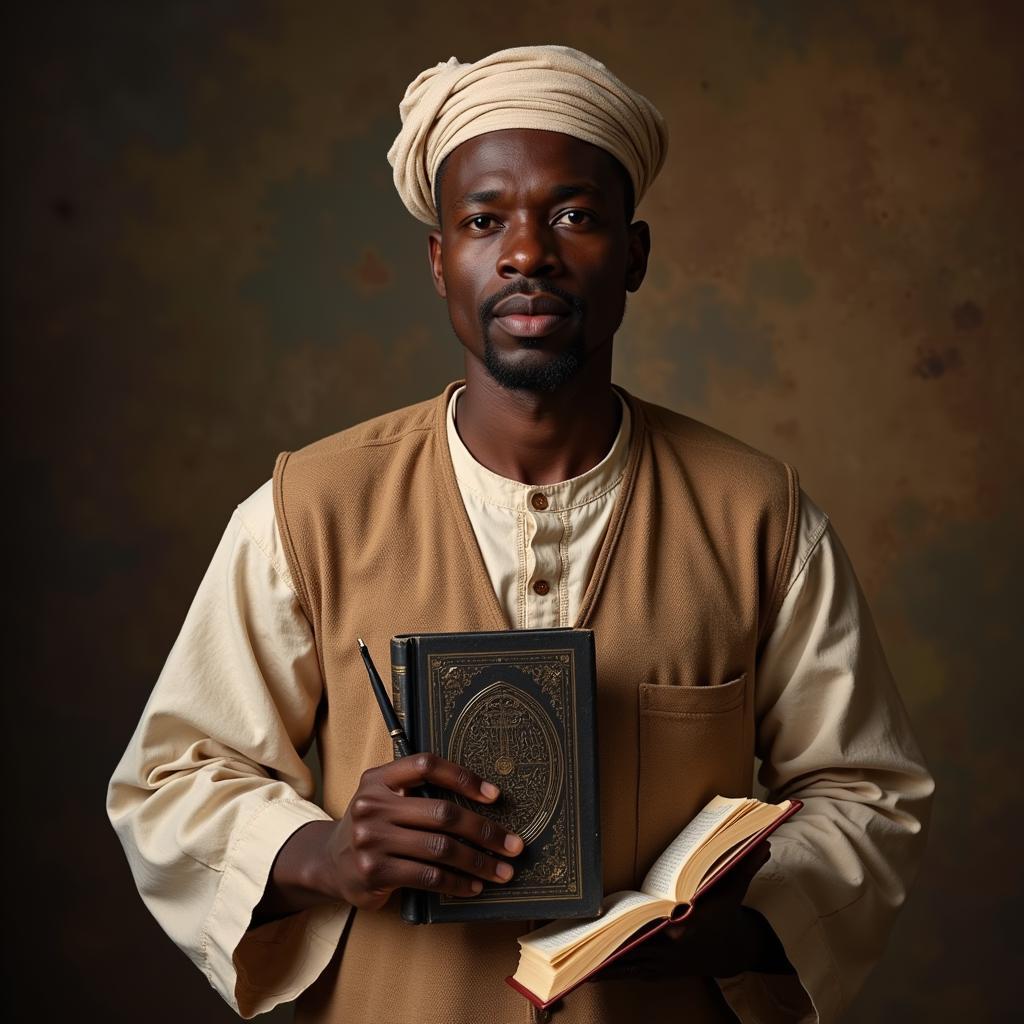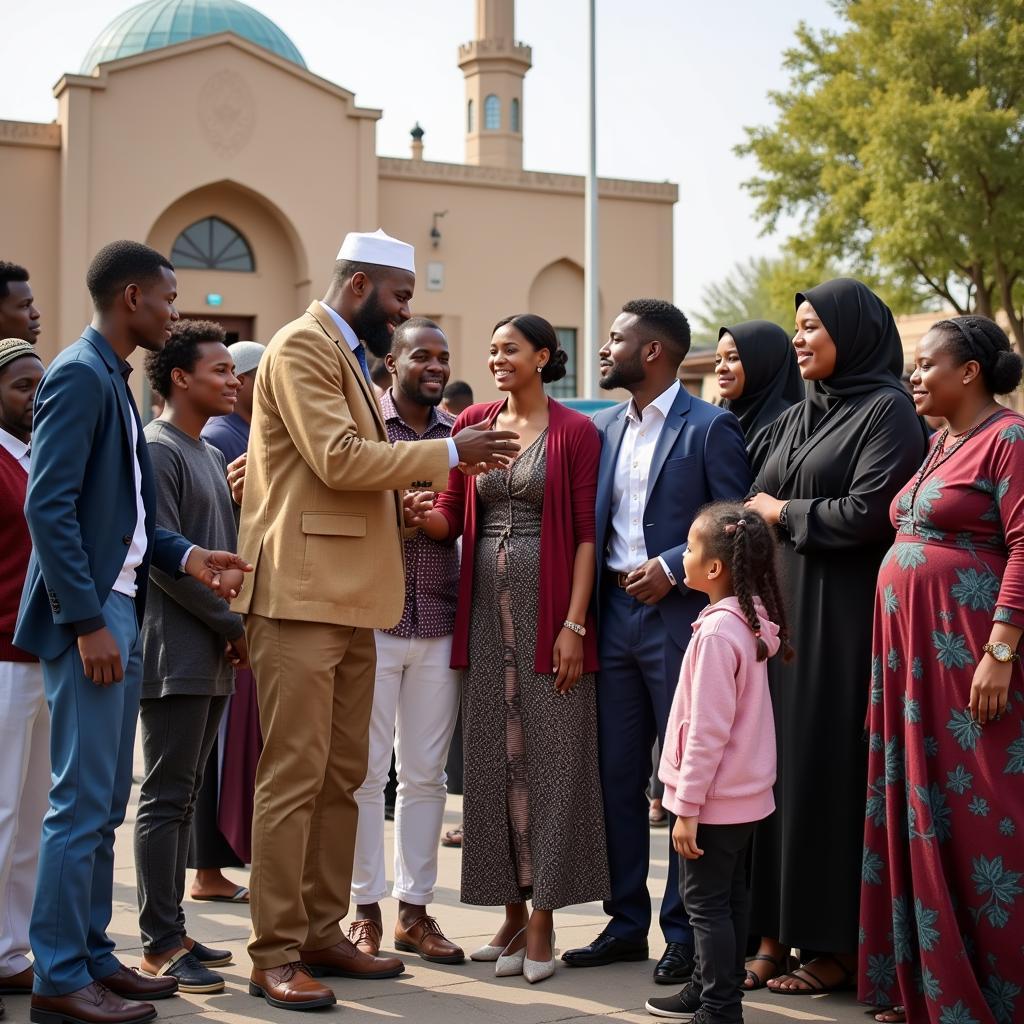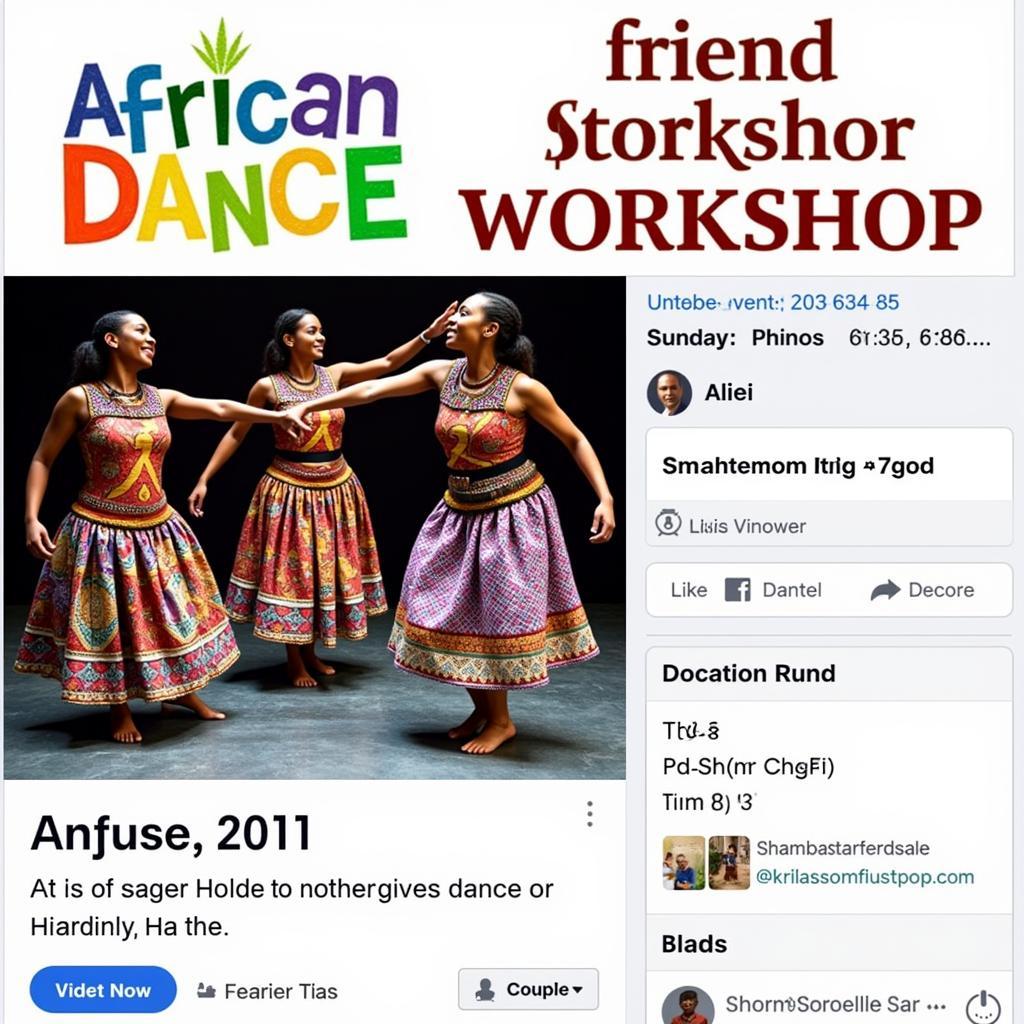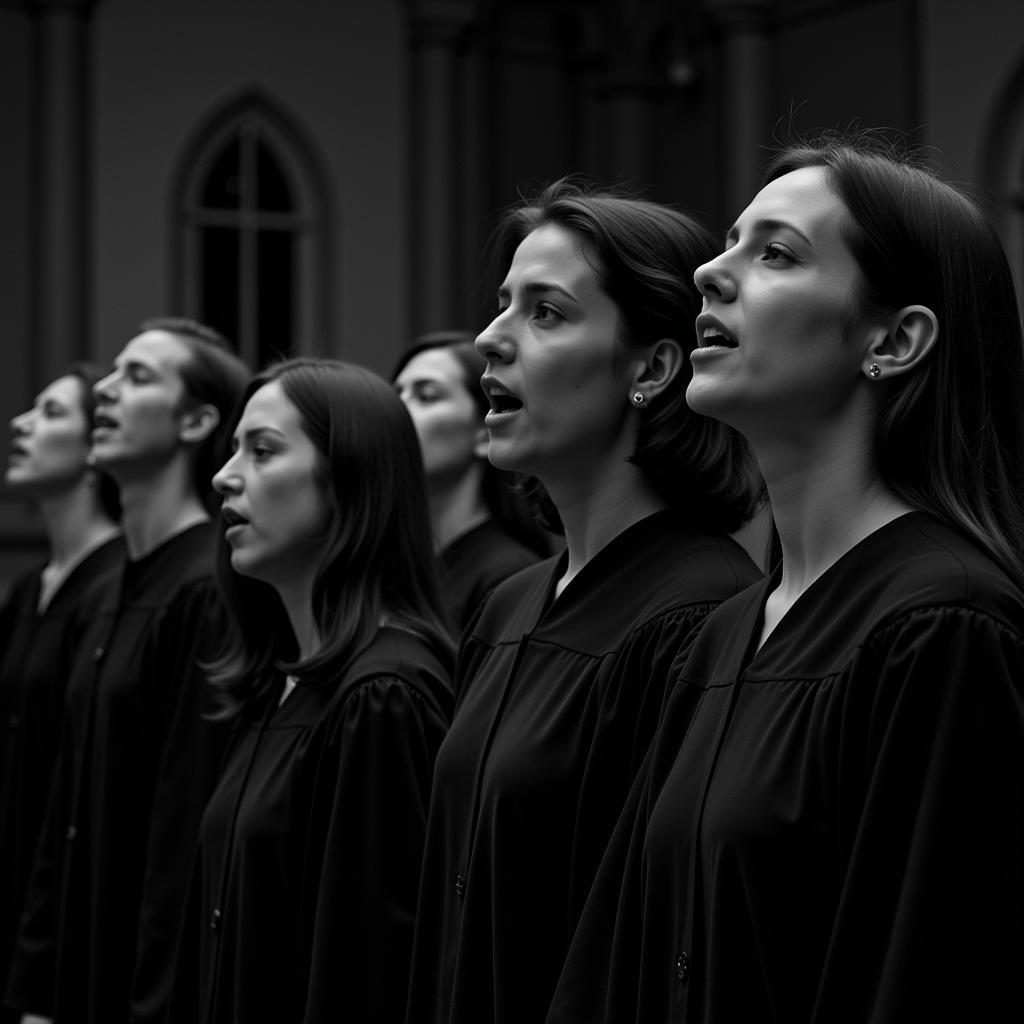African Americans and Islam: A Rich History and Growing Presence
The intersection of African American identity and Islam represents a vibrant tapestry woven from historical threads of resistance, spiritual seeking, and cultural evolution. While often perceived through a modern lens, the connection between African Americans And Islam stretches back centuries, intertwined with the transatlantic slave trade and the enduring legacies of African empires.
A Journey Rooted in History
The story begins in Africa itself, where Islam flourished for centuries before reaching the Americas. West Africa, in particular, boasted powerful Islamic empires like Mali and Songhai, known for their scholarship, trade, and sophisticated societies. Many enslaved Africans brought to the Americas were Muslim, carrying their faith and traditions across the Atlantic.
While the brutal system of chattel slavery sought to erase African identities, some enslaved Muslims secretly maintained their religious practices. Scholars estimate that 15-30% of enslaved Africans brought to the Americas were Muslim. Figures like Omar Ibn Said, a learned scholar captured and enslaved, left behind written accounts that provide invaluable glimpses into the lives of enslaved Muslims striving to preserve their faith under oppressive conditions.
 Enslaved African Muslim Scholar
Enslaved African Muslim Scholar
A Faith Embraced and Evolved
The 20th century witnessed a resurgence of Islam among African Americans. The Nation of Islam, founded in 1930, offered a message of Black empowerment and self-determination that resonated deeply with many during the Jim Crow era. While not adhering to mainstream Islamic theology, the Nation of Islam played a crucial role in promoting Black pride and sparking interest in Islam among African Americans.
Notable figures like Malcolm X, initially a prominent voice in the Nation of Islam, later embraced Sunni Islam after his pilgrimage to Mecca. His transformation highlighted the diversity of thought within African American Muslim communities and the global connections fostered by faith.
 African American Muslim Community
African American Muslim Community
A Legacy of Social Justice and Cultural Fusion
Today, Islam continues to be a significant faith among African Americans. Mosques across the United States serve as centers for worship, community building, and social activism. African American Muslims, drawing upon their unique historical experiences, are actively engaged in interfaith dialogue, advocating for social justice, and contributing to the rich tapestry of American Muslim identity.
The fusion of African and Islamic traditions has also led to distinct cultural expressions, from fashion and cuisine to music and art. African American Muslim artists and creatives are making their mark on the world stage, sharing their perspectives and talents with global audiences.
FAQs about African Americans and Islam
1. What percentage of African Americans are Muslim?
While exact figures are difficult to ascertain, it’s estimated that 2-5% of African Americans identify as Muslim.
2. What are some of the challenges faced by African American Muslims?
Like many minority groups, African American Muslims can face discrimination and prejudice. Additionally, they may navigate the complexities of balancing their religious and cultural identities.
3. How do African American Muslims contribute to American society?
African American Muslims are active in various fields, including education, healthcare, business, and the arts. They are also at the forefront of social justice movements and community activism.
4. What are some resources for learning more about African Americans and Islam?
Numerous books, documentaries, and online resources delve into the history, experiences, and contributions of African American Muslims. Seeking out diverse voices and perspectives is key to understanding this rich and evolving aspect of American culture.
Need More Information?
For a deeper dive into the world of African and African American culture, we invite you to explore these related articles:
- Discover the beauty and significance of [African American boy names that start with K](https://omenkamag.com/african-american-boy-names-that start-with-k/).
- Explore the creativity and diversity of African American names and surnames.
- Delve into the world of African American literature books and discover captivating stories that reflect the richness of African American experiences.
Have more questions? Don’t hesitate to reach out. Contact us at +255768904061, email us at [email protected], or visit us in Mbarali DC Mawindi, Kangaga, Tanzania. Our dedicated team is available 24/7 to assist you.


